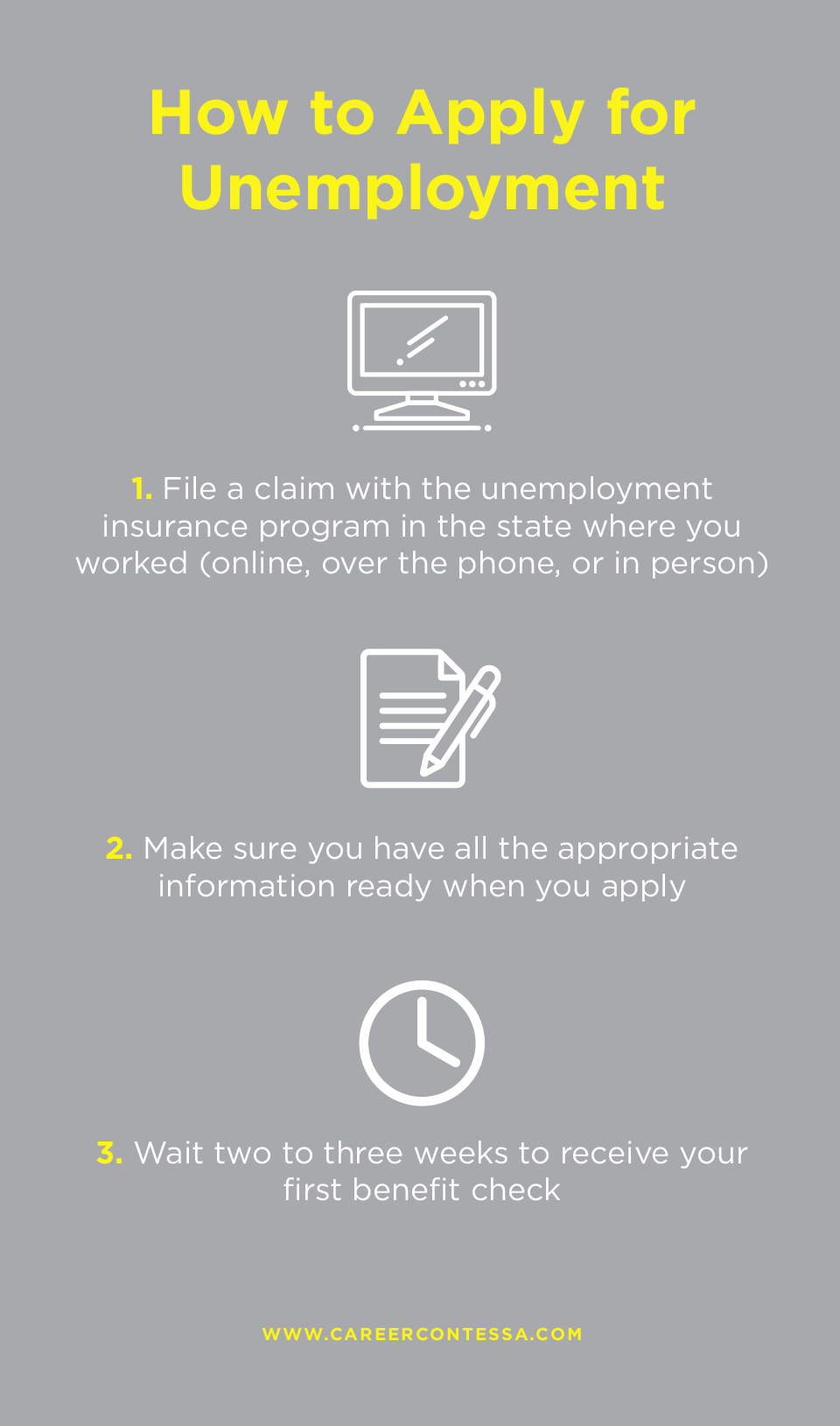Our goal is to provide you with actionable advice throughout your career. While most of our advice relates to job searching, interview skills, career growth, and more, sometimes we have to touch on the not so glamorous side of people’s career paths.
These times include when things don’t go according to plan, they find themselves without a job, and they have to apply for unemployment.
We understand how hard that situation can be for you and how equally hard it is to navigate federal and state laws surrounding the topic. We researched unemployment laws and discovered that the government produces most. We translated the hard to navigate websites and legal jargon the best that we could so you can learn more about unemployment and what it means for you.
This resource will teach you the basics of what you need to know. But then we pass it off to the state governments to provide you with more specific information to determine your eligibility and how to apply for unemployment.
What is Unemployment?
Unemployment is when a person who is
actively seeking employment is unable to find work. Actively seeking employment means that you are in an active search for a new job and are willing and able to work. A common reason to be unemployed is due to company layoffs.
Benefits are available to eligible workers who become unemployed through no fault of their own and meet eligibility requirements through the U.S. Department of Labor’s unemployment insurance program. This means that if you voluntarily quit your job without good cause, you’re likely not eligible to receive benefits.
Unemployment insurance is a joint state-federal program that provides financial relief to eligible workers. All states must follow the guidelines established by federal law, but each state administers its own unemployment insurance program. Eligibility requirements, the application process, and benefits received vary by state.
What Do Unemployment Benefits Provide?
Unemployment benefits are available to provide temporary financial assistance to people who are currently out of work but are actively seeking employment. Each state determines what your specific benefits will look like. Most programs will not replace your entire paycheck from your previous employer and typically payout for no more than 26 weeks.
When calculating the amount you will receive, every state uses its own formula. All states use your previous earnings from your most recent employer to calculate your benefits, usually over a current 52-week period. This means the amount each person receives will vary, and it’s only intended to partially replace your income. Additionally, each state has a maximum and minimum benefit amount.
Keep in mind that unemployment benefits are subject to federal income tax and must be reported on your federal income tax return. You may elect to have the tax withheld by your state unemployment agency.
Who Can Apply for Unemployment?
It’s up to each state to determine their eligibility guidelines for unemployment insurance benefits. According to the Department of Labor, you typically qualify for state benefits if you (1) are unemployed through no fault of your own, (2) meet work and wage requirements, and (3) meet any additional state requirements.
Unemployment During the Coronavirus Pandemic
To provide financial assistance sooner to those who have lost their job as a result of the ongoing coronavirus pandemic, the federal government has allowed state governments to amend their law relating to COVID-19. Some examples where federal law now allows states to pay benefits include:
- When an employer temporarily ceases operations due to COVID-19, which prevents employees from going to work
- If an individual is quarantined with the expectation of returning to work after the quarantine is over
- If an individual leaves their current employment due to the risk of exposure, risk of infection, or to care for a family member
Additionally, federal law is not requiring an employee to quit in order to receive benefits as a result of COVID-19. You also may be required to utilize your sick pay or family leave before you are eligible to apply for benefits. The best resource for you to determine how COVID-19 has impacted your eligibility to apply for unemployment benefits is your local state government.
How to Apply For Unemployment by State
First, you need to file a claim with the unemployment insurance program in the state where you worked. The process of filing a claim varies by state. Typically, you can submit your claim online, over the phone, or in person.
As soon as possible after you become unemployed, you should contact your state’s unemployment insurance program. Each state will provide additional information regarding how to file your claim if you worked in a state other than the one where you live or if you worked in multiple states.
Second, make sure you have all the appropriate information ready when you apply. When filing a claim, you'll be asked for information regarding your former employment, including dates of employment and your previous employer’s address. If you do not have this information readily available, it could delay your claim.
Once you file your claim with your state’s unemployment program, it generally takes two to three weeks to receive your first benefit check.
We aren’t the experts on how unemployment works, but the government is. Your best place to go to learn more about what unemployment looks like to you is the Department of Labor. From there, you’ll be directed to your local state website to learn about the specific laws in your state. To save you some time, we pulled together a list of state resources.
Other Unemployment Resources:













